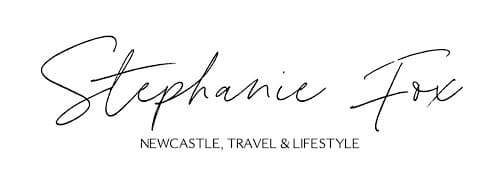
Self-Care Advice For Anyone Going Through A Career Transition
Career transitions can be both exciting and challenging, often bringing a mix of anticipation and anxiety. Whether you’re changing roles, switching industries, or embarking on an entirely new career path, taking care of your mental and physical well-being is crucial.
Disclaimer: This post is a collaboration
Maintain a Routine
While your professional life may be in flux, maintaining a stable routine in other areas can provide a sense of normalcy and control. Try to keep regular sleep patterns, mealtimes, and exercise schedules. This structure can help reduce stress and ensure you’re taking care of your basic needs during a potentially turbulent time.
Create a daily schedule that mimics a workday If you’re between jobs. This might include dedicated time for job searching, skill development, and networking, interspersed with breaks and leisure activities.
Prioritise Physical Health
Physical health and mental well-being are closely interconnected. During times of stress, it’s easy to neglect our bodies, but maintaining good physical health can significantly impact your ability to cope with career transition challenges.
Ensure you’re getting regular exercise, even if it’s just a daily walk. The NHS recommends at least 150 minutes of moderate-intensity activity a week for adults. Exercise improves physical health, boosts mood, and reduces stress.
Pay attention to your diet as well. Stress can often lead to unhealthy eating habits, but maintaining a balanced diet can help stabilise your mood and energy levels. Try to incorporate plenty of fruits, vegetables, and whole grains into your meals. If you’re finding it difficult to maintain healthy eating habits, consider consulting a nutritionist for personalised advice.
Practice Mindfulness and Relaxation Techniques
Mindfulness and relaxation techniques can be powerful tools for managing stress and anxiety during a career transition. These practices can help you stay grounded in the present moment, rather than worrying about the future or ruminating on the past.
Consider trying meditation or mindfulness apps like Headspace or Calm, which offer guided sessions suitable for beginners.
Progressive muscle relaxation is another effective technique for reducing physical tension associated with stress. This involves systematically tensing and then relaxing different muscle groups in your body. You can find guided progressive muscle relaxation exercises online or through various mental health resources.
Seek Support
Going through a career transition alone can be isolating. Reach out to friends, family, or colleagues for support. Sometimes, simply talking about your experiences and concerns can provide relief and new perspectives.
Consider joining support groups or networking events for people in similar situations. Organisations like the Chartered Institute of Personnel and Development (CIPD) often host events and webinars that can be valuable for networking and gaining insights during career transitions.
If you’re finding the transition particularly challenging, don’t hesitate to seek professional help. Many workplaces offer Employee Assistance Programs (EAPs) that provide confidential counselling services. Alternatively, you can speak to your GP about accessing mental health support through the NHS.
Celebrate Small Wins
During a career transition, it’s easy to focus on the end goal and overlook the small achievements along the way. Make a conscious effort to recognise and celebrate your progress, no matter how small it may seem.
Did you update your CV? Celebrate it. Had a productive networking conversation? Acknowledge it. Learned a new skill? Give yourself credit. These small wins can boost your confidence and motivation, helping you maintain a positive outlook throughout your transition.
Find Digital Tools To Make Things Easier
There are tools and apps to streamline various aspects of your career transition, allowing you to focus more energy on self-care. Leveraging these resources can reduce stress and increase efficiency in your job search or skill development process.
Use platforms like LinkedIn, Indeed, or Reed, which allow you to set up job alerts tailored to your preferences.
Find resume and CV templates to help you finesse your presentation. For example, a retail resume template can help you to create a CV that will stand out in that industry. Visit Adobe to browse their broad selection of industry-specific templates.
Engage in Continuous Learning
A career transition often involves acquiring new skills or knowledge. Approach this as an opportunity for personal growth rather than a daunting task. Continuous learning can be a form of self-care, providing a sense of progress and achievement.
Set realistic learning goals for yourself. This might involve taking online courses, attending workshops, or reading industry-relevant books. The Open University offers a range of free courses that can be a great starting point.
Remember to balance your learning with other activities. While it’s important to prepare for your new role or industry, avoid the temptation to spend all your time studying. Make sure you’re still allocating time for relaxation and hobbies.
Maintain Work-Life Balance
Even if you’re between jobs, maintaining a healthy work-life balance is crucial. It can be tempting to spend all your time job hunting or preparing for your new role, but this can quickly lead to burnout.
Set clear boundaries for your job search or transition activities. Allocate specific times for these tasks and stick to them. Ensure you’re making time for hobbies, social activities, and relaxation.
Be mindful of establishing healthy boundaries from the outset if you’re starting a new job. It’s natural to want to impress in a new role, but overworking can lead to stress and reduced job satisfaction in the long run.
